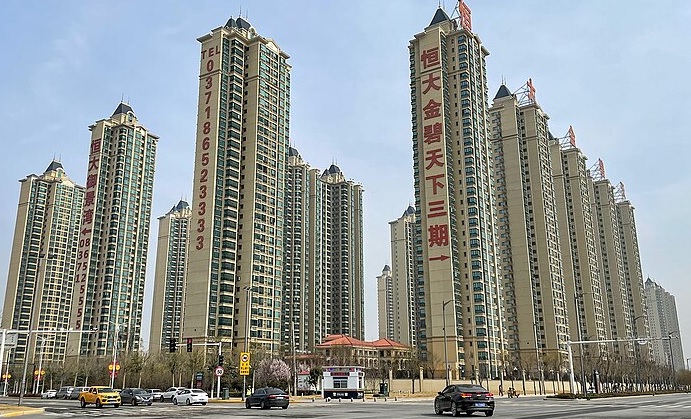
(Photo : China Property)
China Property
- China has announced tax policies to revitalize its struggling property market, focusing on enhancing deed tax incentives for housing transactions.
- The measures, effective from December 1, include an increase in the minimum area for homes eligible for a one percent low tax rate and a reduction of the minimum pre-collection rate of land VAT.
- Policymakers approved a proposal to swap six trillion yuan of hidden debt belonging to local governments for official loans with more favorable terms.
- Amid escalating trade tensions and domestic economic challenges, China's recent measures reflect its commitment to stabilizing its economy and boosting its property market.
China, in a bid to rejuvenate its struggling property market, has announced a series of tax policies. The announcement was made by various government agencies, including the Ministry of Finance, and was reported by state media on Wednesday. The focus of these policies is the enhancement of deed tax incentives for housing transactions, a move aimed at actively supporting basic and improved housing needs.
For two decades, the property sector has accounted for approximately a quarter of China's gross domestic product. However, a slump that has lasted several years has significantly impacted growth. In response to this downturn, authorities have set a growth target of around five percent for 2024.
In October, China announced that it would increase the credit available for unfinished housing projects to over $500 billion, as part of its efforts to bolster the sector.
China's Economic Stimulus Measures
In addition to these measures, Beijing has recently introduced a range of initiatives aimed at stimulating economic activity. These include rate cuts and the easing of some home purchasing restrictions. The announcement made on Wednesday by China's Ministry of Finance, state tax authority, and the Ministry of Housing and Urban-Rural Development was intended to clarify various tax incentives designed to support the real estate market.
The measures, which will be implemented from December 1, include an increase in the minimum area for homes eligible for a one percent low tax rate from 90 square meters to 140 square meters. Previously, homes of this size were taxed up to three percent. Other policy reforms include a uniform reduction of the minimum pre-collection rate of land VAT by 0.5 percentage points across regions.
In a significant move, policymakers approved a proposal to swap six trillion yuan ($840 billion) of hidden debt belonging to local governments for official loans with more favorable terms.
International Trade Tensions and Domestic Economic Measures
Amid these domestic economic measures, China is also keeping a close eye on escalating trade tensions following Donald Trump's re-election. China's top economic planning body, the National Development and Reform Commission (NDRC), urged the government to bolster domestic demand. The NDRC stated that the dominance of the domestic market in the economic cycle will become increasingly apparent in the coming period.
In a related development, the US Treasury Department issued final rules on investment restrictions against China on October 28, targeting sectors such as semiconductors, artificial intelligence, and quantum computing. These rules aim to prevent U.S. investments from advancing technologies that could pose national security threats.
China's leadership last month warned that the economy was being plagued by new problems as officials unveiled a raft of stimulus in one of the biggest drives to boost growth for years. The white list scheme, announced earlier this year, pushes local authorities to recommend housing projects for financial support and work with banks to ensure their completion.
Despite these measures, some analysts remain skeptical. Stephen Innes, managing partner at SPI Asset Management, stated that China's property mess isn't something that can be patched up with a few speeches and half-baked measures. However, Beijing has expressed full confidence in achieving its 5 percent goal.









